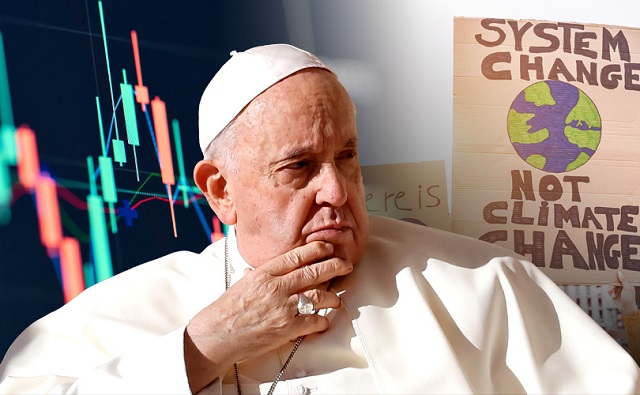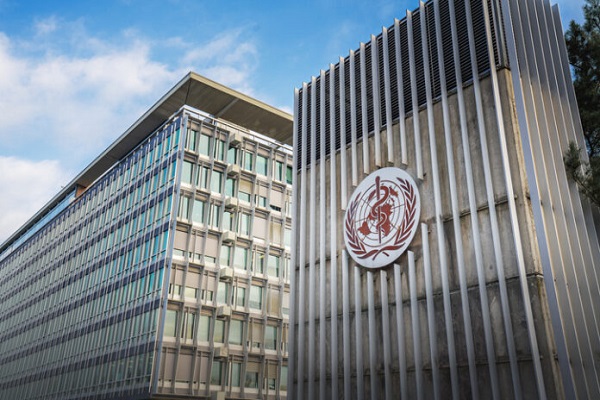COVID-19
Our dumb country: an update

Belated welcome to Canada, Sir. We’re like this sometimes
Posted with permission from Paul Wells
Here at the Paul Wells newsletter, we get results. It just always seems to take more work than it should. Today we have an update on Sir Mark Walport FRS FRCP FRCPath FMedSci FRSE, who was asked last summer by the government of Canada to look into Canada’s handling of the COVID-19 pandemic.
I have known this since several days after Sir Mark’s work began. (Sir Mark is one of the UK’s leading medical research administrators. Over ’ome, I learn, if somebody is both a physician and a knight you address them as Sir Or Lady Firstname, followed by the appropriate abbreviations for their credentials, not as Dr.) I waited until November for the government to announce it, and was surprised when this didn’t happen. In fact I assumed my source was mistaken. (My source didn’t even want to be a source, they were just somebody who knew stuff and was chatting with me.) I have a longstanding interest in the notion that governments, being the creature of fallen humans, can benefit from introspection. So I thought some outside eyes-on the COVID response might help reduce the casualty count of some future catastrophe. The most recent of several posts I wrote to that effect is here.
My source kept assuring me that the Sir Mark thing was a real thing, and the government kept keeping schtum, so in November I finally gathered up my courage and wrote to the health ministry to ask whether this thing that I knew was happening was, you know, happening. The finest modern communications strategists have now perfected the government’s communications to the point where if you ask the government any question at all about anything at all, a process begins whereby dozens of people Working From Home figure out a way to suck your brains out through your nose using a ceremonial ceramic straw, and indeed this is what happened here.
Twelve days and two follow-up emails after I sent my query, a process I detailed with a kind of heartsick fascination in this post from November, I received this response:
The COVID-19 pandemic has had significant and complex health, social and economic impacts on our society.
As the Government of Canada continues its transition out of the COVID-19 pandemic response phase, internal and external partners are undertaking reviews of their role in the government’s response to COVID-19 and are identifying strategies to strengthen Canada’s preparedness for future health emergencies.
This reply was a thing of terrible maddening beauty, like the planet-smashing robot in the second-season Star Trek episode The Doomsday Machine, and I stared at it helplessly, the way William Windom did when the whale-shaped automaton finally turned in space and descended on him with its immense glowing orifice. This response, built up layer after layer by nameless armies of the powerless like the Pyramids themselves, managed to acknowledge the accuracy of my request while providing no actual information. It was the sound of one hand clapping, performed by committee.
Well, that was it for me. I tapped out. I was done. But Cathay Wagantall, whom I don’t believe I’ve met, picked up the baton from my shattered grasp. Wagantall is the Conservative MP for the riding of Yorkton — Melville, in Saskatchewan. Members of Parliament are allowed to send written questions to the government, which is required to reply. At the end of Nov., as I noted at the time, Wagantall put the following question on the Order Paper:
You can click on that to read it in full, but essentially she asked: What’s Sir Mark doing, when will we hear more, what’s it cost and why haven’t you said so?
The thing about the House of Commons is, it does have some powers, and thus cornered by one of its members, the government finally relented. On Monday the government tabled Sessional Paper 8555-441-2022 in response to Wagantall’s question. Here it is!
In this reply we learn real things, without quite learning the answer to everything Wagantall asked. In August Health Canada, PHAC and the Chief Science Advisor (that’s Mona Nemer) asked for an “independent expert panel” to “conduct a review of the federal approach to pandemic science advice and research coordination.” Sir Mark is indeed the panel’s chair.
Note that his mandate is narrow. He hasn’t been asked to look at medical supply, pharmaceutical production capacity, quarantine practice, stay-at-home orders, curfews, the wisdom of in-person vs. virtual schooling, or all the myriad of other issues that are worth looking at. This is neither proper nor improper, it just is what it is. Did you hear much about the advice Dr. Nemer provided the government during COVID, in her capacity as Chief Science Advisor? I bet you didn’t, though she wasn’t secretive about it, it just didn’t get much attention amid everything else that was going on. Sir Mark will apparently mostly be looking into how to make this little-noticed corner of the pandemic response work better. As for all the other stuff a government could look at — maybe they’ll leave it in the hands of a future generation of political staffers who are, for the moment, baristas! Maybe there’s some other after-action process going on, but we asked for the wrong one! One never knows, do one!
Sir Mark isn’t getting paid much, and, mirabile dictu, his report will be made public within two months. I’ve got a hunch that wasn’t the original plan.
The response to Wagantall’s Order Paper question is signed by Mark Holland, the Minister of Health. I notice that, like many ministers who were moved in 2023, Holland inherited his mandate letter from his predecessor, Jean-Yves Duclos. I also notice that mandate letters no longer contain this paragraph, which appeared in every mandate letter to the original 2015 cabinet:
We have also committed to set a higher bar for openness and transparency in government. It is time to shine more light on government to ensure it remains focused on the people it serves. Government and its information should be open by default. If we want Canadians to trust their government, we need a government that trusts Canadians. It is important that we acknowledge mistakes when we make them. Canadians do not expect us to be perfect – they expect us to be honest, open, and sincere in our efforts to serve the public interest.
I guess that was then.
COVID-19
NIH Quietly Altered Definition For Gain-Of-Function Research On Its Website, Former Fauci Aide Confirms

 From the Daily Caller News Foundation
From the Daily Caller News Foundation
By JASON COHEN
National Institutes of Health (NIH) Principal Deputy Director Lawrence Tabak confirmed on Thursday that his agency’s communications department altered NIH’s definition for gain-of-function research, with the change being “vetted” by “experts.”
The NIH until Oct. 20, 2021 defined this research as “modif[ying] a biological agent so that it confers new or enhanced activity to that agent,” while “some scientists use the term broadly to refer to any such modification,” according to the House Oversight Committee. Republican Rep. Nicole Malliotakis of New York questioned Tabak, a former aide to Dr. Anthony Fauci, about the agency changing its definition of the research on its website, asking him who authorized the alteration.
WATCH:
The current website does not define gain-of-function research, but asserts this research is usually uninvolved with enhanced potential pandemic pathogens.
“The change was made by our communications department because of the confusion that people have about the generic term of gain-of-function and the specific term gain-of-function,” Tabak testified.
Malliotakis responded by suggesting the communications department would not be qualified to make a change like this and must have had other input.
“The content was vetted,” Tabak testified. “By individuals who are subject-matter experts.”
Fauci firmly denied that the National Institute of Allergy and Infectious Diseases (NIAID) funded gain-of-function research on bat-based coronaviruses at the Wuhan Institute of Virology (WIV) before the COVID-19 pandemic during a Senate hearing in May 2021.
“The NIH has not ever and does not now fund gain of function research in the Wuhan Institute of Virology,” Fauci said.
Tabak testified on Thursday that the NIH did fund this research at the Wuhan Institute of Virology, but it “depends on [the] definition.”
The NIAID, which Fauci previously led, funded the nonprofit group EcoHealth Alliance to study bat-based coronaviruses in China that consisted of the transfer of $600,000 to the WIV, the Daily Caller News Foundation previously reported.
COVID-19
COVID Lab Leak: Over four later, EcoHealth Alliance funding is finally suspended

From Heartland Daily News
Thursday, May 16, 2024
Federal Funding Stripped From Nonprofit at Center of COVID Lab Leak Controversy
Today, the Biden administration suspended federal funding to the scientific nonprofit whose research is at the center of credible theories that the COVID-19 pandemic was started via a lab leak at the Wuhan Institute of Virology.
This morning, the U.S. Department of Health and Human Services (HHS) announced that it was immediately suspending three grants provided to the New York-based nonprofit EcoHealth Alliance (EHA) as it starts the process of debarring the organization from receiving any federal funds.
“The immediate suspension of [EcoHealth Alliance] is necessary to protect the public interest and due to a cause of so serious or compelling a nature that it affects EHA’s present responsibility,” wrote HHS Deputy Secretary for Acquisitions Henrietta Brisbon in a memorandum signed this morning.
For years now, EcoHealth has generated immense controversy for its use of federal grant money to support gain-of-function research on bat coronaviruses at the Wuhan lab.
In a memo justifying its funding suspension, HHS said that EcoHealth had failed to properly monitor the work it was supporting at Wuhan. It also failed to properly report on the results of experiments showing that the hybrid viruses it was creating there had an improved ability to infect human cells.
Congressional Republicans leading an investigation into EcoHealth’s research in Wuhan, and the role it may have played in starting the pandemic via a lab leak, cheered HHS’s decision.
“EcoHealth facilitated gain-of-function research in Wuhan, China without proper oversight, willingly violated multiple requirements of its multimillion-dollar National Institutes of Health [NIH] grant, and apparently made false statements to the NIH,” said Rep. Brad Wenstrup (R–Ohio), chair of the House’s Select Subcommittee on the Coronavirus Pandemic in a statement. “These actions are wholly abhorrent, indefensible, and must be addressed with swift action.”
Beginning in 2014, EcoHealth received a grant from NIH’s National Institute of Allergies and Infectious Diseases (NIAID) to study bat coronavirus in China. Its initial scope of work involved collecting and cataloging viruses in the wild and studying them in the lab to spot which ones might be primed to “spillover” into humans and cause a pandemic.
Soon enough, EcoHealth used some of the viruses they’d collected to create “chimeric” or hybrid viruses that might be better able to infect human lung cells in genetically engineered (humanized) mice.
This so-called “gain-of-function” research has long been controversial for its potential to create deadly pandemic pathogens. In 2014, the Obama administration paused federal funding of gain-of-function research that might turn SARS, MERS, or flu viruses into more transmissible respiratory diseases in mammals.
In 2016, NIH flagged EcoHealth’s work as likely violating the 2014 pause.
EcoHealth President Peter Daszak argued to NIH at the time that the viruses his outfit was creating had not been proven to infect human cells and were genetically different enough from past pandemic viruses that they didn’t fall under the Obama administration pause.

Wuhan Institute of Virology and Peter Daszak of EcoHealth Alliance
NIH accepted this argument under the condition that EcoHealth immediately stop its work and notify the agency if any of its hybrid viruses did show increased viral growth in humanized mice.
But when these hybrid viruses did show increased viral growth in mice, EcoHealth did not immediately stop work or notify NIH. It instead waited until it submitted an annual progress report in 2018 to disclose the results of its experiments.
A second progress report that EcoHealth submitted in 2021, two years after its due date, also showed its hybrid viruses were demonstrating increased viral growth and enhanced lethality in humanized mice.
In testimony to the House’s coronavirus subcommittee earlier this month, Daszak claimed that EcoHealth attempted to report the results of its gain-of-function experiments on time in 2019, but was frozen out of NIH’s reporting system.
The HHS memo released today says a forensic investigation found no evidence that EcoHealth was locked out of NIH’s reporting system. The department also said that EcoHealth had failed to produce requested lab notes and other materials from the Wuhan lab detailing the work being done there and the lab’s biosafety conditions.
These all amount to violations of EcoHealth’s grant agreement and NIH grant policy, thus warranting debarment from future federal funds, reads the HHS memo.
That EcoHealth would be stripped of its federal funding shouldn’t come as too great a shock to anyone who watched Daszak’s congressional testimony from earlier this month. Even Democrats on the committee openly accused Daszak of being misleading about EcoHealth’s work and manipulating facts.
Rep. Raul Ruiz (D–Calif.), the ranking Democrat on the House’s coronavirus subcommittee, welcomed EcoHealth’s suspension, saying in a press release that the nonprofit failed its “obligation to meet the utmost standards of transparency and accountability to the American public.”
An HHS Office of the Inspector General report from last year had already found that EcoHealth had failed to submit progress reports on time or effectively monitor its subgrantee, the Wuhan Institute of Virology.
When grilling Daszak, Democrats on the Coronavirus Subcommittee went to great lengths to not criticize NIH’s oversight of EcoHealth’s work. The HHS debarment memo likewise focuses only on EcoHealth’s failures to abide by NIH policy and its grant conditions.
Nevertheless, it seems pretty obvious that NIH was failing to abide by the 2014 pause on gain-of-function funding when it allowed EcoHealth to go ahead with creating hybrid coronaviruses under the condition that they stop if the viruses did prove more virulent.
NIH compounded that oversight failure by not stopping EcoHealth’s funding when the nonprofit did, in fact, create more virulent viruses, and not following up on a never-submitted progress report detailing more gain-of-function research until two years later.
The House Subcommittee’s investigation into NIH’s role in gain-of-function research at the Wuhan lab is ongoing. Tomorrow it will interview NIH Principal Deputy Director Lawerence Tabak. In June, it will interview former NIAID Director Anthony Fauci.
Originally published by Reason Foundation. Republished with permission.
-

 Crime2 days ago
Crime2 days agoThe US Canadian border: Greatest number of terrorist watch list individuals being apprehended at northern border
-

 Economy20 hours ago
Economy20 hours agoCanadians experiencing second-longest and third steepest decline in living standards in last 40 years
-

 COVID-192 days ago
COVID-192 days agoNIH Quietly Altered Definition For Gain-Of-Function Research On Its Website, Former Fauci Aide Confirms
-

 Opinion24 hours ago
Opinion24 hours agoOrdinary working Canadians are not buying into transgender identity politics
-

 Energy2 days ago
Energy2 days agoPope Francis calls for ‘global financial charter’ at Vatican climate change conference
-

 Great Reset21 hours ago
Great Reset21 hours agoBiden Administration Eager to Sign WHO Pandemic Treaty
-

 Energy23 hours ago
Energy23 hours agoNew Report Reveals Just How Energy Rich America Really Is
-

 Economy21 hours ago
Economy21 hours agoFeds spend $3 million to fly 182 politicians and bureaucrats to climate conference











